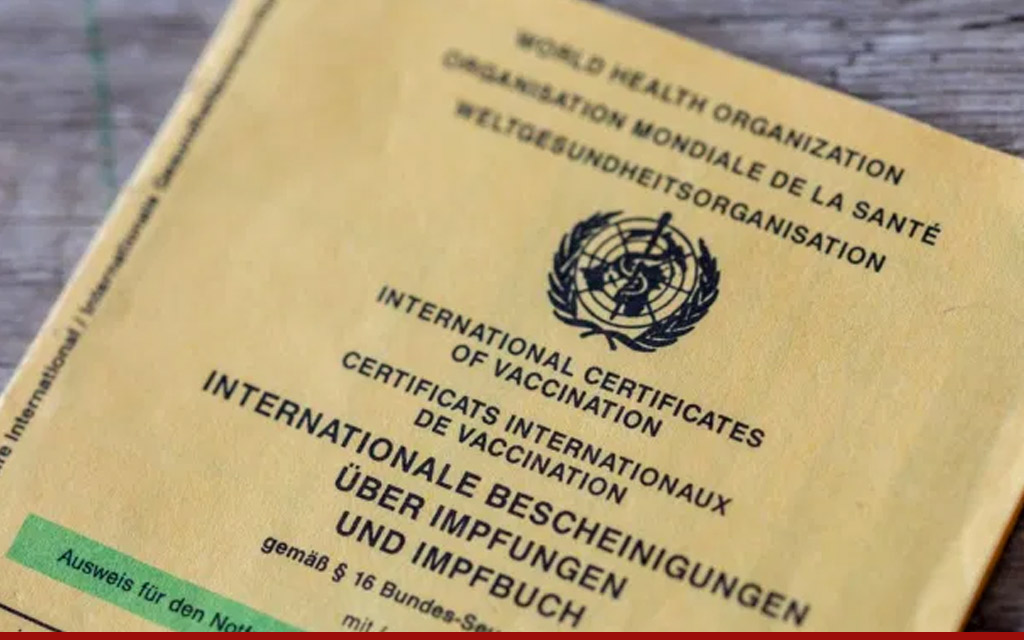As a young mother, I lived in fear of losing those yellow cards filled with my kids’ immunization records. They needed them to play on the school team, go to summer camp, or just head back to the classroom each September. States still require vaccinations (with some exemptions for reasons like religious beliefs). Travel to certain foreign countries still requires vaccinations, but the system is fragmented, and the yellow scorecards are hardly interoperable.
COVID is forcing us to reimagine a digital version of that yellow card. How we approach it may change how we control the virus, reinvigorate the economy, and open the world after lockdown.
I caught up with Bettina Experton, CEO of Humetrix. Her company develops mobile platforms that give consumers control of their medical information while still allowing them to share it–with their consent–with caregivers and institutions. We discussed the inevitable likelihood of a digital health passport–a verifiable certificate to show you’d been vaccinated against Covid-19 and eventually many other diseases. Experton says “health passports” are a digital display of an individual’s vaccinations, with proof that the vaccinations they display can be validated/ trusted. (Sadly there’s already a thriving black market for false documents.)
Questions about a digital health passport abound. For starters, who is most likely to care about them? Employers? Governments? The hospitality industry? Airlines and travel companies? Schools and universities? It’s looking as if the answer will be “all of the above.” That underscores two central problems we now have–a lack of central coordination and insufficient determination by many governments to get this done immediately.
Experton has given this problem a lot of thought, and has good ideas about how trusted repositories for vaccine information might emerge. One logical source is existing government-approved mobile apps from institutions like Medicare or the VA. (Experton’s company Humetrix works with both Medicare and the VA, and has already had its iBlueButton app approved to display Covid vaccination information, including the specific vaccine, date and provider name.)
Another source would be health insurers who could issue mobile certificates by pulling vaccine data from insurance data sources. And finally, the travel industry, especially airlines, is highly motivated to offer health passports in order to open the world’s economy to travel.
Eyes to the Skies
The travel solutions are particularly intriguing because projects like these will face the Sisyphean task of taking data from myriad international sources and making it authoritative worldwide. Following a successful trial with United Airlines in October, four major airlines announced plans to roll out a trusted digital health pass for international travel. Their apps are based on a relatively new standard called CommonPass. It’s backed by The Commons Project Foundation, working with the World Economic Forum (WEF). The app aims to verify passengers’ COVID-19 test results — and soon proof of vaccination, by issuing a confirmation code that lets passengers board certain international flights. At its core, CommonPass relies on interoperable standards like the HL7 FHIR (that’s Fast Healthcare Interoperability Resources if you care) that hundreds of health systems and hospitals, along with accredited labs and other providers, already use in the U.S. and worldwide.
Meanwhile, the International Air Transport Association’s IATA Travel Pass is expected to launch as an app in early 2021. It will hold a passenger’s personal testing, vaccine and health-waiver documentation. Other initiatives from IBM and the Covid Credentials Initiative are also already tracking COVID test results, and soon will document vaccinations as well, in hopes of creating verified “health pass” apps.
Incentive Based Compliance
Israel is the first country that has already introduced a digital health passport. Its “green passport” promises to document vaccination to grant Israelis easy access to restaurants and cultural events and exempt them from quarantine rules or the need to get a virus test before they travel. Incentives like these are expected to raise compliance.
Thompson Reuters reports that Estonia and the World Health Organization also started a pilot for a digital vaccine certificate. China has put in place an app-based health code system that uses travel and medical data to give people a red, yellow or green rating, indicating the likelihood that they have the virus–and whether or not they are allowed to walk around freely. In India everyone who has been vaccinated will get a QR code-based electronic certificate, the health ministry has said. Dangling the carrot of unfettered egress makes getting a digital health passport a desirable way to manage the tradeoff between privacy and freedom, the government there believes.
Obstacles to Adoption
The MIT Review summarizes some of the challenges in creating a digital health passport. Connecting systems across borders means navigating a patchwork of languages, databases, and privacy laws, it says. Even in the UK, where the National Health System maintains a database of vaccine recipients, the government has put any talk of vaccine “passports” on hold. And then in the US, creating universal vaccine credentials will mean weeding through a morass of data, fragmented across tens of thousands of health-care businesses.
Even once these tools are built, says the MIT Review, blocking people from ordinary activities on the basis of vaccination status brings up serious ethical and legal considerations. “Screening people by vaccination status is hard when no country has made vaccination mandatory so far, and there are many cases in which people who might otherwise be eligible (for example, pregnant women or those who suffer from serious allergies) are discouraged from receiving the vaccine while more data is gathered.”
And so life post vaccine begins with many unanswered questions. Businesses, already hurting, may not feel like imposing restrictions on workers. Schools, hungry for students and resource-starved, may not be able to gear up for a passport either. Governments intent of maintaining the privacy of medical records may find compliance nearly impossible.
Should getting a vaccine be required before entering a workplace, plane, hotel or campus? Will the ability to move freely about the world be a sufficient incentive to convince Americans to share their data freely? As vaccinations begin to be administered on a wider scale, the value and use of digital passports will be a hotly debated subject in 2021.
SOURCE: https://techonomy.com/2020/12/vaccination-nation-digital-health-passports-will-be-the-rage-in-2021/




